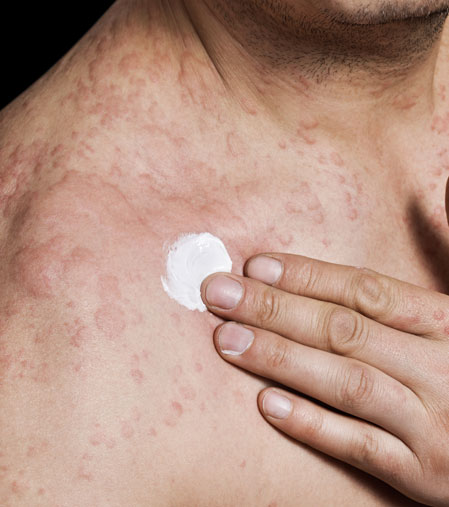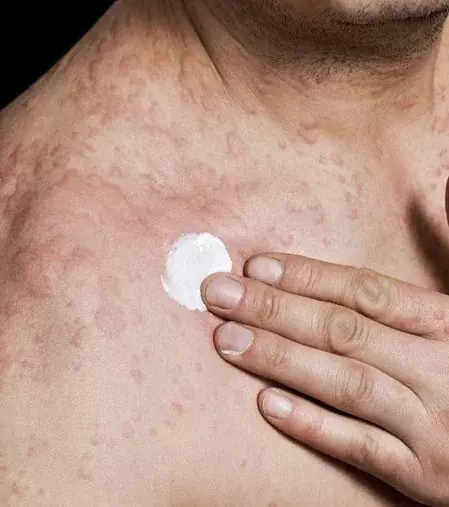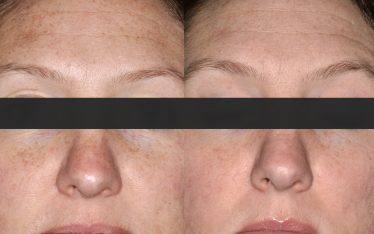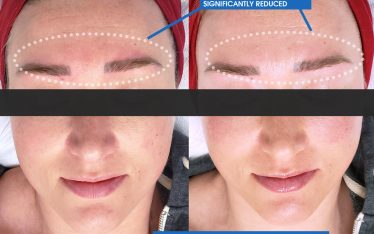October is Eczema Awareness Month


Atopic dermatitis, or more commonly known as eczema, is a chronic, relapsing, inflammatory skin disease that causes extremely dry, itchy skin, with rashes that favor the skin folds of the elbows and knees. The onset is typically within the first year of life but may also first begin in childhood and even adulthood. It is commonly associated with a history of allergies and asthma. The prevalence of eczema is increasing, affecting up to 25% of children and 7% of adults in the U.S. This increase may be contributed to a number of environmental and lifestyle factors such as decreased exposure to microbes, allergens, and foods during infancy and childhood.
People with eczema have a disrupted skin barrier that results in loss of moisture and excessively dry skin. They have a higher number of sensory nerves in the top layer of the skin which leads to an intense itching sensation. They also have an altered immune response leading to inflammation and a decreased diversity of the skin microbiome, making them more prone to infections.
Outbreaks of eczema can be triggered by several factors. Including: sweating, decreased humidity, excessive washing with soaps and hot water, fragrances, detergents, environmental allergens, smoking, emotional stress, and in children food allergies such as wheat, dairy, nuts, and eggs.
There is no cure for eczema, but it can be managed with lifestyle changes. This includes avoidance of triggers and controlling dry skin. Those with eczema should bathe with luke-warm water and use unscented soaps or non-soap cleansers only in the armpits, groin, and feet. Immediately after bathing, the skin should be patted dry and an unscented emollient or cream moisturizer should be applied immediately to lock in moisture. Ideally, moisturizers should be used twice daily. Avoid wearing rough or scratchy clothing and wash laundry using a free-and-clear detergent without additional fabric softeners or dryer sheets. Avoid scented products and perfumes as much as possible, even when labeled as “all-natural.” Try to maintain a stable temperature to avoid sweating, and use a humidifier in the house during the dry winter months. For those that find environmental allergies to be a trigger, a once daily antihistamine such as Zyrtec may be helpful.
If eczema flares continue despite lifestyle changes it is important to seek evaluation and treatment with your dermatology provider. In recent years, there has been a major focus on research for new eczema treatments that target specific pathways in the immune system. This is exciting news for those with chronic eczema that have responded poorly to previous therapies. At Clarus Dermatology our staff is well trained and experienced in treating eczema. If you or someone you know is suffering with eczema, call to make an appointment today with one of our PA’s.
Katelyn Krueger, PA-C


